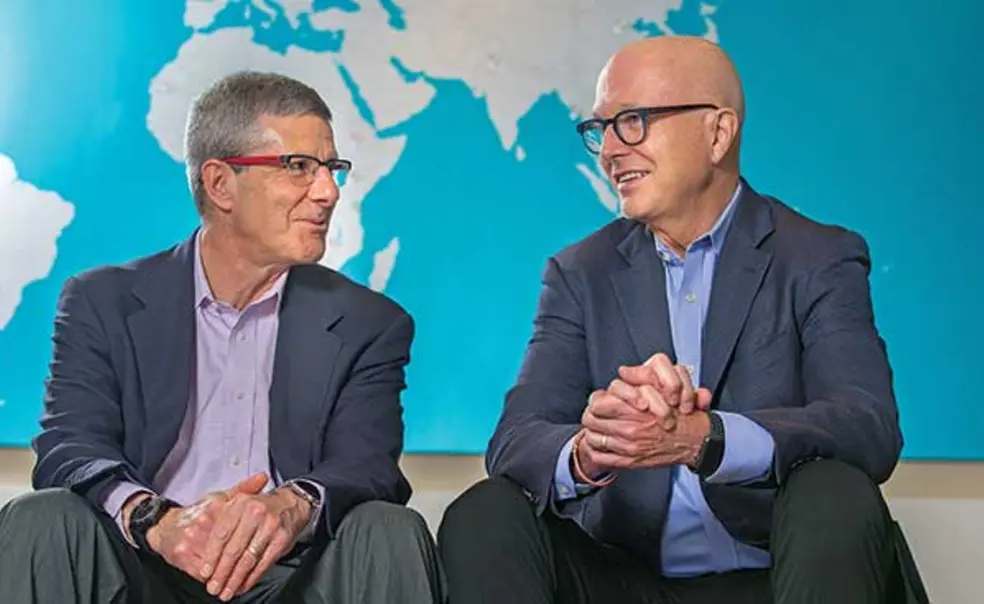Dave King ’77 and Steve Davis ’79: Paths Cross
Some 30 years after meeting at Princeton, two friends find common cause at PATH
Promoting health equity and eradicating disease is a cause embraced by governments, private foundations, industry experts, and individuals. But bringing those entities together to deliver innovations in health care has been an overlooked part of the process. Seattle-based PATH, one of the largest global-health NGOs, is focused on changing that in the more than 70 middle- to low-income countries where it operates.
“We are quarterbacking coalitions around a problem,” says Steve Davis ’79, PATH president and CEO since 2012.
“Depending on the problem, we may bring together the Gates Foundation, the Food and Drug Administration, pharmaceutical companies, ministries of health, and others.”
Davis, who also teaches social innovation at Stanford University’s Graduate School of Business, points to meningitis A in Africa. Previous prevention efforts had been too expensive to employ on the continent. PATH not only convened a group of partners, including the World Health Organization, but it also pushed for a 50-cents-per-dose target for the vaccine. Davis says that because of PATH’s initiatives, 400 million vaccines were delivered, effectively eliminating the disease in what’s known as the meningitis belt, a group of approximately two dozen sub-Saharan countries.
In 2013, Dave King ’77, CEO of LabCorp, joined PATH’s board of directors. The two men had bonded while on Princeton’s crew, where King was the coxswain. Davis, from Montana, and King, from Berkeley, Calif., spoke often about social philosophy and issues such as apartheid. “I did feel intimidated at Princeton,” says King, “and here was somebody else who also came from a public high school and who also felt a little overwhelmed, and we had a nice personal connection.”
“In rich countries [people] don’t die from tuberculosis or malaria, but millions in other parts of the world do. ... We have been very successful so far at moving the needle.”
— Steve Davis ’79
After the two graduated, they followed separate career paths. Then, in 2015, someone mentioned King’s name when Davis and the board were looking for a new member.
“I thought there was no way it could be the same person I knew at Princeton,” says Davis. “Other than occasional Christmas cards between Dave and me, we had roughly a 30-year gap in our communication.”
The work being overseen by Davis and King, who is now PATH’s board president, ranges from technical strategy to finance to audit matters. “We have worked together extensively on PATH’s financial model, thinking about how to increase PATH’s discretionary financial resources so we can pursue big new ideas, and how to maximize the value delivered to our global-health mission from each dollar spent,” says King.
“We try to create more access through innovation,” says Davis. “The classic example is that most people in rich countries don’t die from tuberculosis or malaria, but millions in other parts of the world do. Equity involves using the best processes and service innovations to close the gap. We have been very successful so far at moving the needle.”
PATH now delivers health care in the form of vaccines, primary care, and more to 150 million people worldwide each year. Davis will step down as PATH president and CEO at the end of 2019, and while he’s not sure what he’ll do next, he is immensely proud of the growth and impact he has overseen during his seven-year tenure at the helm of the organization. “I think our approach to global health and development is a great testament to a lesson from Princeton,” says Davis. “In everything we do today, just as we did as students, you have to have the evidence to develop the solutions that will solve the problem.”










No responses yet